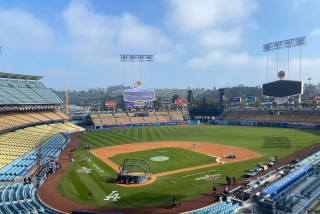The ticket cartel
YOUR DAUGHTER IS PINING TO SEE the Cheetah Girls on stage, but the show is sold out almost everywhere. Practically the only place with available tickets is Columbus, Ohio, which seems not to be as fanatical about the quartet as the rest of the country. The trip is an indulgence, but the Internet makes it a little more affordable -- with one glaring exception.
Your airline, which imposes a surcharge on paper tickets, gives you a discount for buying online. Your hotel also offers a better deal on its website than you could get by dialing its toll-free reservations number. But Ticketmaster slaps you with a 33% surcharge for the privilege of buying your tickets on the Web.
Why do Ticketmaster’s add-ons -- which range from 30% to 40% of the face value of the typical concert ticket -- stay high while other online transactions get cheaper? For starters, running a nationwide ticketing operation capable of handling blockbuster events and huge venues is an expensive proposition, especially when a large number of ticket buyers want a human being’s help in picking their seats. That means maintaining large phone banks and putting sales booths in numerous retailers’ shops.
More important, though, is that Ticketmaster has practically created a cartel for concert-goer abuse: It shares the extra fees with the concert hall and the show’s promoter, who may have a separate deal to share fees with the performer. Many venues and promoters have multiyear contracts with Ticketmaster that specify just how big a piece of the action they get. Everybody does pretty well for himself, with the exception of the marks who actually buy tickets.
The system has proven remarkably resistant to change. Competitors to Ticketmaster have come and gone, succeeding mainly in carving out niches (such as movie tickets) instead of providing a full-fledged alternative. The most vibrant competition these days, in fact, is over the secondary market of tickets for resale on the Web. Bands that sought to circumvent Ticketmaster, such as Pearl Jam, have struggled to put together tours at venues not served by the company. And a Justice Department antitrust probe into Ticketmaster went nowhere.
There are signs, however, that the ticketing giant’s grip may be weakening. Live Nation, the country’s largest concert promoter, is engaged in a battle with Ticketmaster in an attempt to lower ticket prices. Other large players, including concert promoters and chains of venues, could join the uprising. Of course, ticket buyers won’t notice the difference unless promoters and venues kick their surcharge habits. Maybe that will be the next revolution.
More to Read
Sign up for The Wild
We’ll help you find the best places to hike, bike and run, as well as the perfect silent spots for meditation and yoga.
You may occasionally receive promotional content from the Los Angeles Times.






